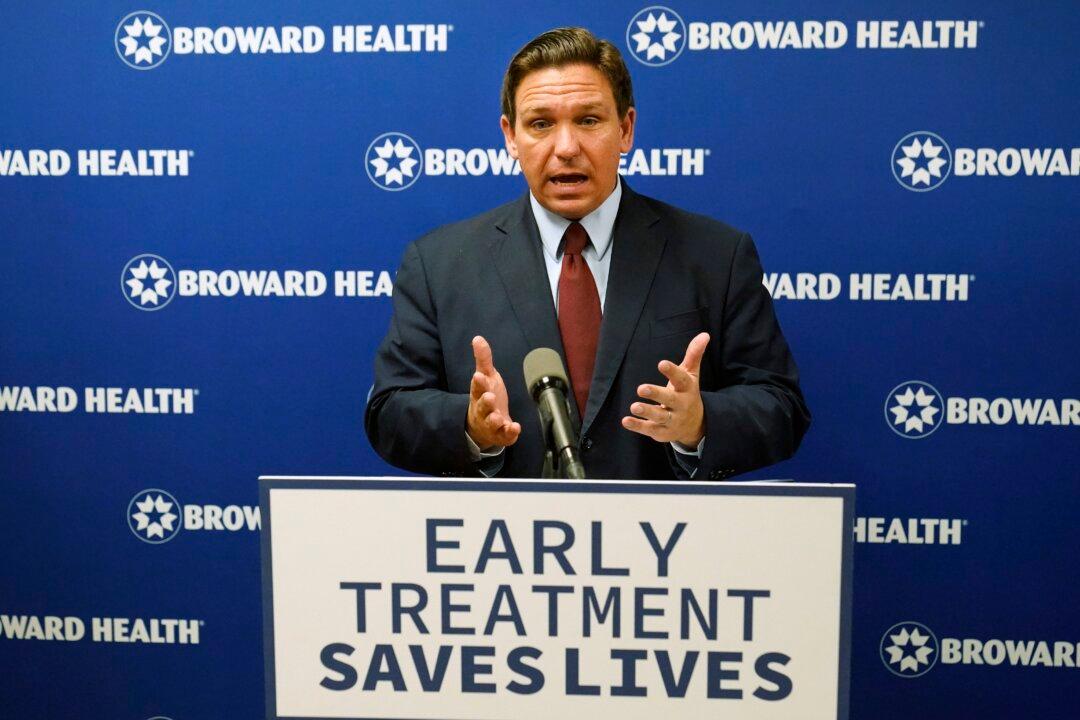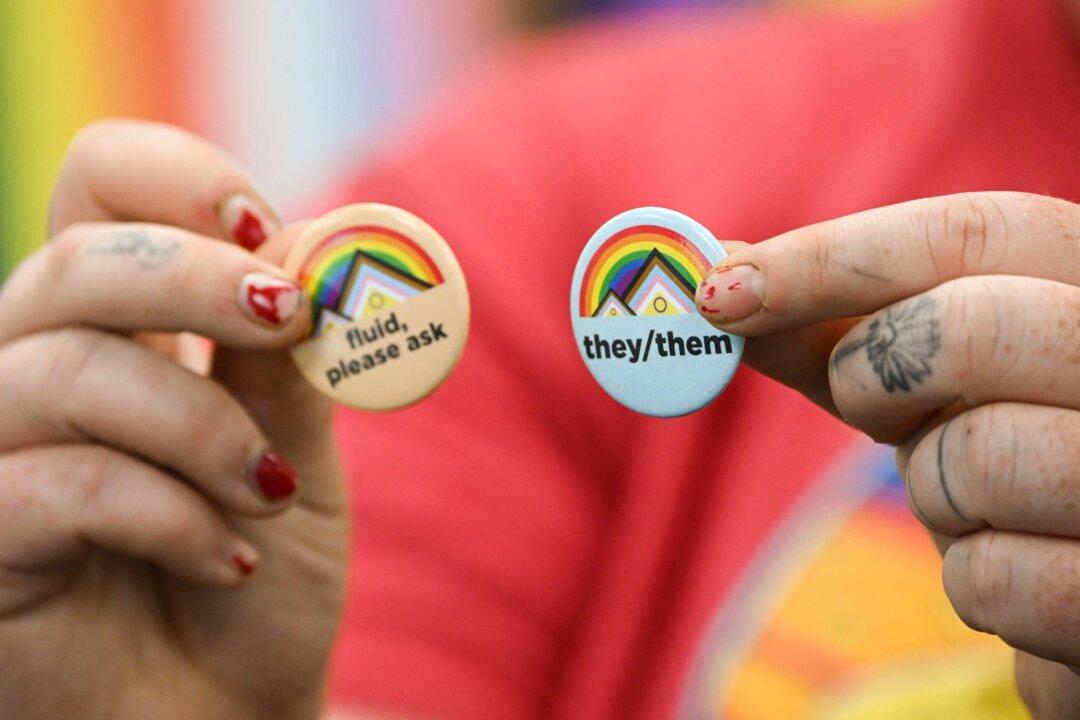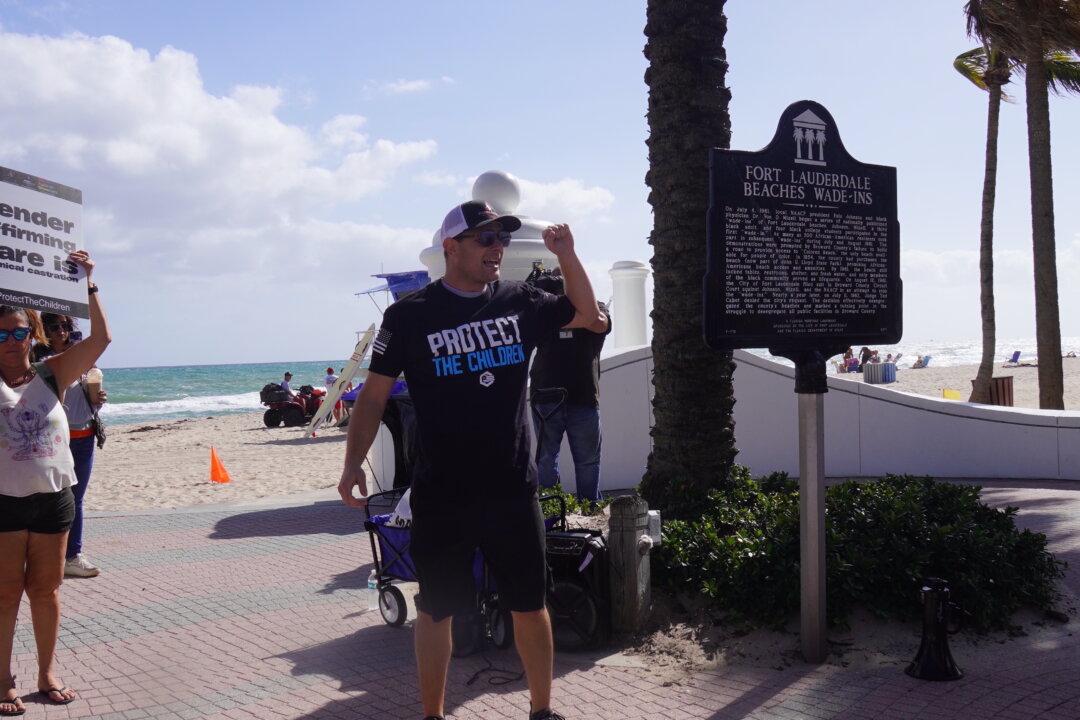Florida Gov. Ron DeSantis announced on Jan. 3 that the federal government had relaxed its policies on limiting monoclonal antibody treatment drugs, paving the way for the state to receive more doses.
DeSantis said as soon as more doses were released he would be setting up to 10 new public infusion centers in southern and central Florida. “We’re locked and loaded,” the governor said at a press conference at Broward Health in Ft. Lauderdale.




